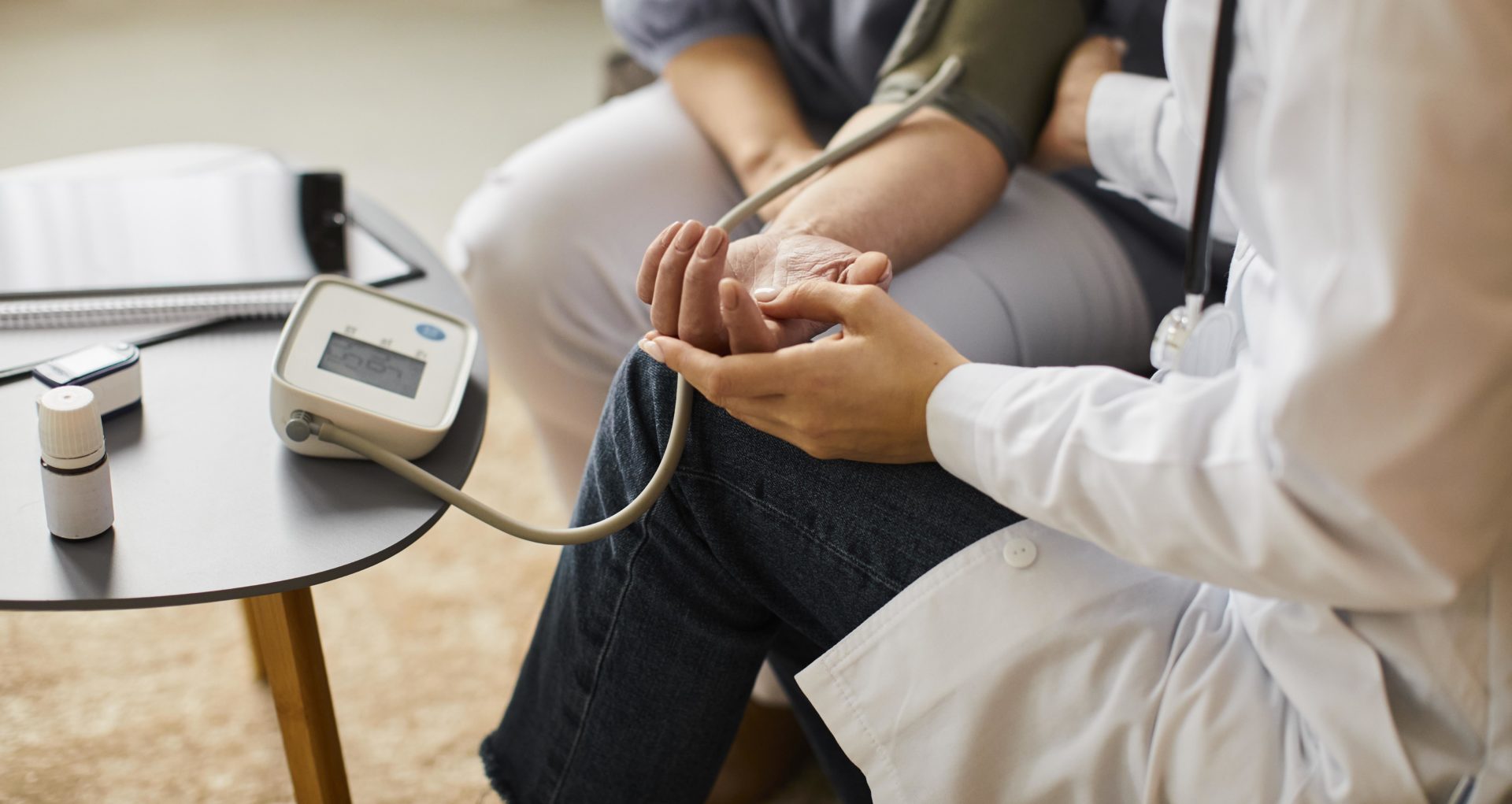WHAT IS HYPERTENSION?
Hypertension is the medical term for high blood pressure. At a basic level, it means that the pressure of the blood pumping through the arteries, veins, and heart is too high. Over time, this can cause the blood vessels to become thin/weak, the heart to become large and less effective, the vision to diminish and eventually fail, the kidneys to fail, and most seriously, can cause heart attack and stroke. Hypertension can occur as a result of genetics or lifestyle choices, but often, is affected by both.
Symptoms include headache (throbbing), ringing in the ears, visual changes, chest pain, shortness of breath, nausea, vomiting, swelling of the hands/feet/legs, and other non-specific symptoms. However, hypertension does not always present with symptoms. Someone’s blood pressure can be significantly elevated without any symptoms whatsoever. For this reason, this condition has been colloquially termed “the silent killer”. This demonstrates the importance of annual wellness screenings to make sure that one’s blood pressure is staying within the normal range over time. Most healthcare providers prefer the blood pressure to be below 130/80, or 140/90 depending on other health conditions.
REDUCE YOUR RISK:
Things that you can do to reduce your risk of developing high blood pressure include:
QUIT SMOKING: smoking cigarettes significantly increases your risk of developing high blood pressure. If you are interested in quitting and need assistance, please schedule an appointment with your primary care provider today.
AVOID/LIMIT ALCOHOL USE: limit alcohol use to no more than 1 drink daily for women and 2 drinks daily for men.
AVOID SALT: salt in the diet can increase the blood pressure and make swelling worse. Oftentimes, salt is hidden in processed and canned foods. Try eating fresh food as much as possible to avoid unintentional sodium intake. Additionally, foods from restaurants are notoriously high in salt.
MAINTAIN A HEALTHY WEIGHT AND GET ACTIVE: obesity can cause blood pressure to be higher. If you are interested in adopting a healthier lifestyle and need assistance with weight loss, please schedule with your primary care provider.
CONTROL OTHER CONDITIONS: diabetes, high cholesterol, and other chronic diseases can contribute to the damage that high blood pressure can cause. For this reason, it is important to be tested for and control additional conditions that you may be diagnosed with.
If you think you might have high blood pressure, or if you have a family member who has been diagnosed and you have never been tested, please schedule an appointment with your primary care provider today!
By: Gwyn Morson, FNP-C
https://www.heart.org/-/media/files/health-topics/answers-by-heart/what-is-high-blood-pressure.pdf?la=en
Woman photo created by freepik – www.freepik.com
